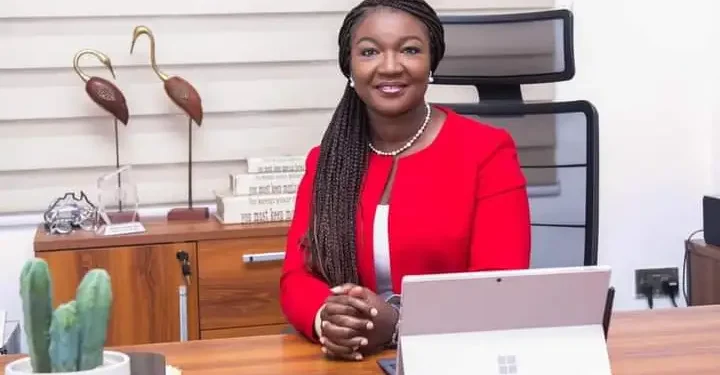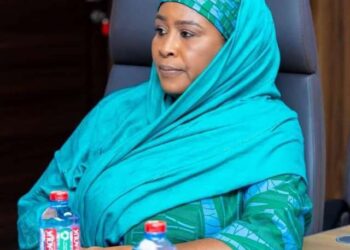Joyce Bawah Mogtari, Special Aide to President John Dramani Mahama, has reaffirmed the National Democratic Congress (NDC)’s commitment to combating corruption and strengthening anti-corruption institutions in Ghana.
Speaking in an exclusive interview with Serwaa Amihere on GHOne TV, madam Mogtari outlined the party’s strategy for transparency and accountability, emphasizing the importance of a renewed focus on governance and integrity.
Addressing the role of the newly established Office for Reporting and Accountability Liaison (ORAL), Mogtari explained its mandate as a transitional body tasked with gathering information on corruption-related issues.
“ORAL’s purpose is straightforward—collect and preserve evidence, protect witnesses, and create a platform for citizens to share information,” she said. “This is part of a broader strategy to ensure the government demonstrates its commitment to fighting corruption during the transition period.”
Mogtari highlighted the need for systemic reforms, citing the misuse of public resources under previous administrations. She pointed to projects like the National Cathedral and the PDS concession deal, claiming significant sums of money had been spent with little to show for it.
“In the last few years, we’ve seen unprecedented nepotism and corruption,” she stated. “Over $60 million was spent on the National Cathedral with no tangible outcome. Similarly, $12 million was wasted on the PDS deal, resulting in the loss of the Millennium Compact for power distribution—funds that could have improved electricity access for Ghanaians.”
The aide also touched on the stalled construction of the Pwalugu Dam, which she described as a missed opportunity for agricultural transformation. “With $11.8 million gone, there’s nothing to show for it. This dam could have provided irrigation for year-round farming in the northern regions. These failures demand accountability.”
Mogtari stressed that ORAL is not intended to replace existing anti-corruption bodies but to complement them by preparing evidence for the Attorney General’s Office. She noted that once the Attorney General is appointed, ORAL will hand over its findings for further action.
“The work of ORAL will end with the appointment of the Attorney General. Its mandate is to prepare a comprehensive report as part of the transition process,” she clarified.
The NDC’s anti-corruption plan also includes reevaluating the Office of the Special Prosecutor (OSP). “We are examining whether to retain or reform the OSP. Mr. Mahama has emphasized the need to strengthen all governance institutions to fight corruption effectively,” Mogtari added.
She acknowledged concerns that existing institutions like the police and EOCO (Economic and Organized Crime Office) could handle ORAL’s tasks. However, she argued that political interference and partisanship had compromised their effectiveness.
Referencing the resignation of the first Special Prosecutor, Martin Amidu, Mogtari highlighted the challenges of the previous administration’s anti-corruption agenda. “Amidu himself accused the former President of being complicit in corruption, which shows how deeply entrenched the problem was,” she remarked.
As the NDC gears up for its next term, Mogtari assured Ghanaians that fighting corruption remains a priority. “We are committed to building a transparent and accountable society, as envisioned in our constitutions. Strengthening anti-corruption agencies is a critical step toward achieving that goal.”










Discussion about this post